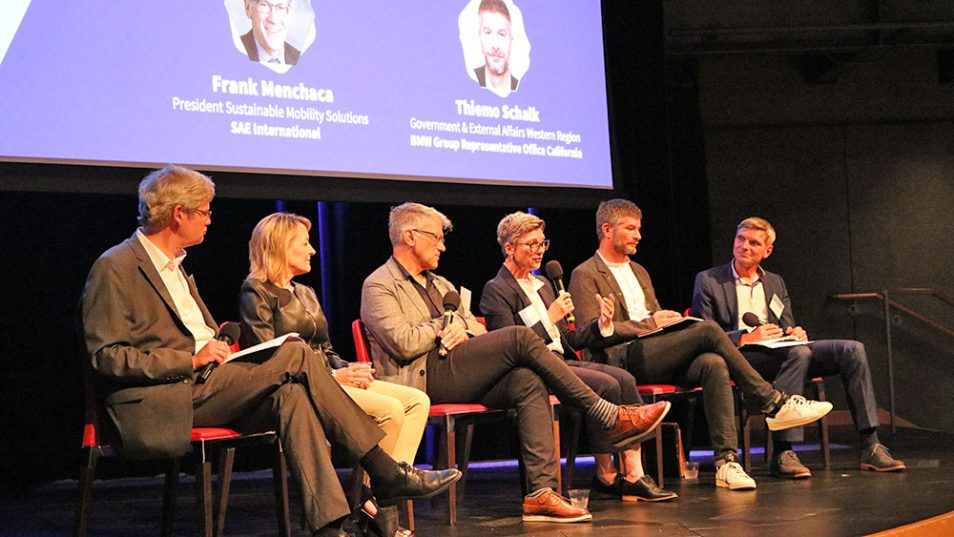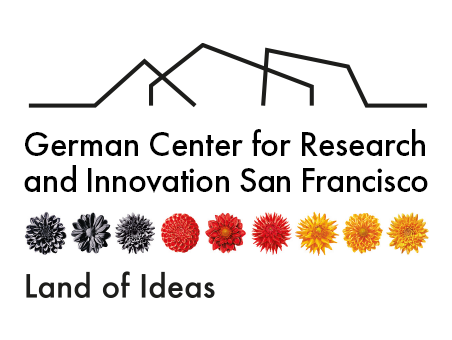In focus: The work of DWIH San Francisco in 2022
 © DWIH San Francisco
© DWIH San Francisco
In its first months since being established, the new DWIH in San Francisco has taken key steps towards becoming a sought-after player on the U.S. West Coast, making a name for itself as a mediator between U.S. and German innovation drivers.
Successful start
To kick off its official program, DWIH San Francisco hosted a visitor trip. From April 27 to 29, a total of 37 invited guests – German and U.S. politicians along with representatives of research and academia in the two countries – had the opportunity to meet potential partner organizations on site. “We set ourselves the goal of mapping out the Bay Area innovation and research landscape in very compact form in the space of three days,” says Dr. Zahar Barth-Manzoori, Director of DWIH San Francisco. The program also featured visits to the Autodesk Technology Centre and Stanford University. “We wanted to get across what makes an elite U.S. university tick.” This was followed on the evening of April 29 by a grand opening gala at the Exploratorium in San Francisco, where the German delegation was joined by future partners and supporters.
The future of Silicon Valley
The Bay Area continues to be considered one of the most innovative regions in the world. But it too is subject to change. With the pandemic receding, the U.S. think-tank Bay Area Council of Economics is taking the opportunity to conduct a study. The question: how do foreign science and research institutions assess the potential of this innovation hotspot after COVID-19? Based on in-depth interviews with key international contacts on the ground, the report was presented in cooperation with DWIH San Francisco on May 18, 2022. “This was extremely helpful for us in terms of touching base with the entire international community in the region within a very short space of time,” says Zahar Barth-Manzoori. “Everyone suddenly knew who we were.” Participants included representatives from the U.S., Germany, the U.K., Ireland, Italy, Canada, Austria and South Korea.
Rethinking mobility
One key goal of the DWIH is to get actors from expert communities to network with each other. Since 2017, the AHK San Francisco has organized the German-American Mobility Dialogue, a transatlantic format dedicated to the question of how mobility can be reconceived, especially in the light of the climate crisis. 2022 was the first time DWIH San Francisco participated as a co-organizer in the event, which was held at the Exploratorium on August 30. Mobility experts from the academic, industrial and public sectors focused their discussion on the question of an appropriate response to existing and future crises, given that these also put pressure on global automotive supply chains.
First Falling Walls Lab in Berkeley
DWIH San Francisco organized its first Falling Walls Lab on September 28, 2022. The DWIH makes use of this worldwide pitch event for researchers to support early-career investigators in the various countries. “The response to our call for proposals was fantastic,” says Zahar Barth-Manzoori. “We had lots of good proposal submissions, fascinating pitches and a great jury.” The event was moderated by Hanni Geist, Head of Programs at DWIH San Francisco. For her, the Falling Walls Lab was also a good opportunity to raise the profile of the new DWIH among the target group of early-career researchers.
Start-up funding for universities
Like all other German Centers of Research and Innovation, DWIH San Francisco is committed to supporting start-ups. The Transatlantic University Accelerator Matchmaking event on November 2, 2022 focused on one target group in particular: the start-up centers at German universities. “Our aim is to develop support programs that specifically address these multipliers,” explains Zahar Barth-Manzoori. “When early-career researchers start up a company while still at university, this is usually the very early phase of product development. After this, they’re very involved with their idea and putting it into practice, so they’re hardly able to look at what’s going on around them.” Yet we know that this is precisely what would be good for them and their ideas, she says. “Internationalization in the early spin-off phase has been shown to offer very wide-ranging benefits.” In order to support this, DWIH San Francisco has developed an online matchmaking service that connects U.S. universities on the West Coast with German universities.
Klaus Lüber
